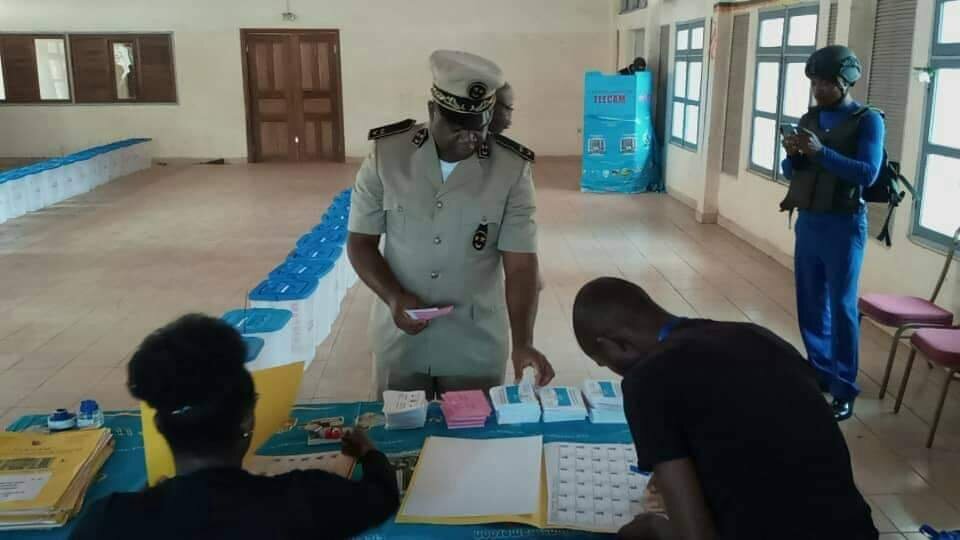Cameroonian Parliamentary Elections Marred by Violence
Violence and a heavy military presence have defined the February 9 parliamentary elections in Cameroon. (@Mimimefo237)
Cameroon held its first parliamentary elections in seven years on February 9; however, a low turnout rate, alleged intimidation, and alleged voter fraud have eroded trust in the election results.
Cameroon’s political climate has long been dominated by unrest. The main causes of unrest have been a separatist movement in the English-speaking western provinces of the predominantly French-speaking country and the subsequent government crackdowns in the English-speaking provinces. Violence related to the so-called Anglophone Crisis accounted for most of the electoral disruptions on February 9. These disruptions included low turn-out and violence. Voting in French-speaking regions was conducted in a relatively routine fashion, albeit with heavy military presence.
In areas with a heavy separatist presence, more than 100 candidates were abducted leading up to the vote. The North West and South West Regions, where the Anglophone Crisis is centered, allegedly saw low voter turnout, and separatist-affiliated gangs allegedly mutilated citizens caught with voting cards.
“No one should intimidate you. You have to vote and decide who manages your future and the military is there to protect you,” North West Region Governor Deben Tchoffo said to the citizens.
However, abuses by the military have placed Cameroonians between two hostile militant groups, and many decided the risk was not worth it. One resident denounced the situation, saying “I wanted to vote, but I did not. I didn’t want to get a bullet for exercising my right.” Violence in the English-speaking regions of the country has persisted for years; however, a senior researcher at Human Rights Watch, Ilaria Allegrozzi, noted that violence surrounding the recent election was unprecedented: “This is the first time since the Anglophone Crisis began that I have seen this level of violence.”
Some international organizations, such as Amnesty International and Human Rights Watch, blamed the country’s military and the separatists for the violence. Various officials from those organizations have criticized military operations in the English-speaking provinces leading up to the election. One official, a researcher with Amnesty International, accused the military of perpetuating violence: “[t]he security measures and increased military presence announced by the Cameroonian government to ensure this weekend’s vote can take place appear to have been a pretext for a much more sinister operation.”
Separatists, representing the movement to create the independent state of Ambazonia, attacked the legitimacy of the Cameroonian election in the English-speaking regions and called for a lockdown to prevent the votes from taking place. Fombat Forbah Dieudonné, a spokesperson for one separatist group, claimed, “We are bent on doing anything, anything that it takes for this election, this sham election, this colonial election, not [to be held] in Ambazonia.”
In a national address to the youth of Cameroon held on February 10, President Paul Biya urged separatists to lay down their arms and reintegrate with society. In concluding his speech, Biya said, “Of course, much remains to be accomplished. We will do so together. Together, we will build the just and prosperous society to which we aspire.”

